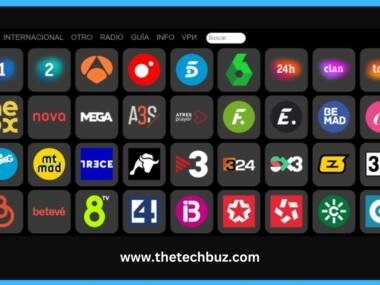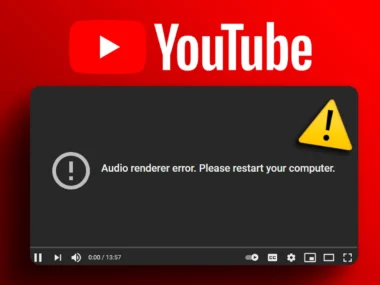Techniques for Succeeding in the Digital Era:
The fast-paced digital world of today has made online marketing a crucial part of corporate strategy. It provides unmatched chances to connect with a worldwide audience, increase brand recognition, and boost sales. However, understanding the world of online marketing can be confusing given the wide range of tools and strategies accessible.
The Development of Internet Advertising:
Since the invention of the internet, online marketing—also referred to as digital marketing—has seen tremendous change. These days, it includes a broad variety of strategies, such as pay-per-click (PPC) advertising, social media marketing, content marketing, search engine optimization (SEO), and more.
Changes in customer behavior are the driving force behind the transition from traditional to online marketing. These days, people use social media sites, e-commerce websites, and search engines to spend a significant amount of time online.

Important Elements of Web Marketing:
Search Engine Optimization (SEO)
Increasing your website’s search engine ranking through optimization is known as search engine optimization (SEO) (SERPs). Improved rankings make your website more visible and attract natural traffic. For SEO to be effective, it involves:
Finding and focusing on the appropriate keywords that prospective clients use when looking for goods or services is known as keyword research.
On-page SEO is the process of optimizing headers, text, and meta tags on websites for certain keywords.
Off-Page SEO: Increasing the authority of your website by constructing backlinks from respectable websites.
Technical SEO: Make sure your site loads quickly, works well on mobile devices and is simple to use.

Content Promotion:
To draw in and keep the interest of a target audience, online marketing focuses on producing and disseminating worthwhile, timely, and consistent material. It consists of:
Blog Posts: Frequently updated pieces that offer insightful analysis and support the development of authority within your sector.
Videos: Captivating images with social networking and YouTube sharing capabilities.
Infographics: Easily shared visual summaries of information that have the potential to increase traffic.
E books and Whitepapers: Comprehensive manuals that offer insightful information and can be used to create leads.
Online Marketing on Social Media;
TikTok, Facebook, Instagram, Twitter, LinkedIn, and other social media sites are excellent resources for audience engagement. Among the components of effective social media marketing are:
Optimize your business profiles to show off your brand and make sure they are complete.
Stuff creation is the regular sharing of interesting and pertinent stuff.
Engagement: Taking part in discussions, replying to remarks, and interacting with followers.
Advertising: Reaching a wider and more specific audience with sponsored social media advertisements.

Advertising Using Pay-Per-Click (PPC):
With pay-per-click (PPC) advertising, you may post advertisements on search engines and other websites and only have to pay when someone clicks on them. Important PPC features include:
Choosing which keywords to bid on is known as keyword selection.
The process of creating an advertisement that entices readers to click on it.
Creating landing pages to turn visitors into paying clients.
Campaign management is the process of keeping an eye on and tweaking campaigns to maximize results.
Email Marketing :
One of the best methods for nurturing leads and preserving client connections is still email marketing. Among the tactics for effective email marketing are:
Building a list of subscribers who are interested in your products or content is known as list building.
Segmentation is the process of breaking up your email list into groups according to preferences, behavior, or demographics.
Personalization: Adapting email content to each recipient specifically to boost response rates.
Automation is the use of tools to send customized emails in response to predetermined actions or triggers.
Techniques for Achievement:
Establish Specific Objectives
Any web marketing strategy should start with well-defined, quantifiable goals in mind. Whether your goal is to increase sales, generate leads, or increase website traffic, establishing precise objectives will help you define your plan and gauge its effectiveness.
Recognize Your Target
It’s critical to have a thorough understanding of your target market. Find out about the interests, internet habits, and demographics of your audience by conducting market research. To better imagine and comprehend your ideal clientele, create buyer personas.
Create a plan for your content.
Effective content marketing is based on a well-thought-out content strategy. Make sure your content is in line with your business objectives and is tailored to the needs and tastes of your audience. Creating great material regularly will draw in and keep readers.
Make Use of Analytics and Data
To monitor the effectiveness of your internet marketing campaigns, use analytics tools. Tools such as Google Analytics offer data on user activity, website traffic, and conversion rates. Make use of this information to hone your tactics and enhance your advertising.
Keep Up with the Trends
The field of digital marketing is always changing. By participating in online communities, attending webinars, and reading industry blogs, you may stay up to date on the newest trends and best practices.
Make Mobile Friendly
It’s critical to optimize your website and content for mobile, as more people are accessing the internet through mobile devices. Make sure your website works well on mobile devices, loads quickly, and provides a consistent user experience across all platforms.
summary
Businesses have enormous opportunities to connect and interact with their target audience through online marketing. Businesses can develop successful plans that promote growth and success by utilizing the many online marketing components, such as email marketing, PPC advertising, social media marketing, SEO, and content marketing.





